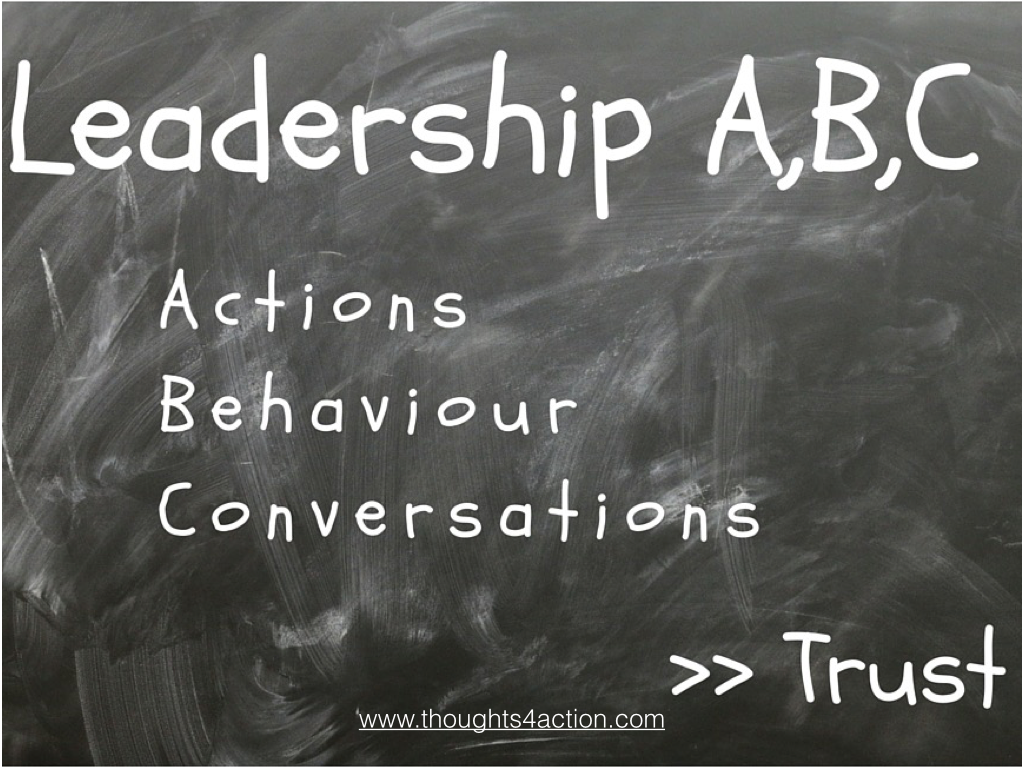
Three Things You Need to Master
You will find lots of articles and books describing the importance of trust in a leadership context.
Because you are a leader only if you have followers, and having followers presupposes that there is trust, if I am going to follow you – anywhere – I need to trust you. If I don’t trust you, I will be reluctant to do much for you, let alone follow you.
The trickier a task is or the riskier an adventure is going to be, the more important is this notion of trust.
So, what is it that the best leaders actually do to build and maintain trust?
It’s quite simple – they do just three things:
• they act
• they are aware of their behavior.
• they have powerful conversations
So, think of yourself and your leadership role. You are the main instrument, and you have these three movable parts to work with:
A) Your actions – what you decide to do or decide not to do
B) Your behavior – how you comport yourself on stage
C) Your conversations – Who do you talk to, why do you talk to them, how do you talk to them, and how often does this happen
Each of us does this differently.
The way you combine these three instruments defines you as leaders. This is your unique leadership style.
Leadership Style is Important
There is a direct correlation between how a leader engages with his team and how the team engages with the customer.
There is a direct relationship between a person’s level of engagement and the leadership style of his immediate supervisor. That applies at all levels of the organization.
As a consequence, the role of the team leader, regardless of what level in the organization, becomes increasingly important.
The challenge for most of us is not so much that we lack the skills but that we are just unaware of how our actions, behavior, and conversations are affecting our surroundings.
What we are aware of, we can control – what we are not aware of, ends up controlling us.
True Mike. Those are essential traits of a leader. May I add my humble contribution to one of the factors. How to stage yourself as a leader. It’s a good metaphor and I examined it in my thesis at RUC how leaders are perceived as great. First, they could define the target clearly. Second, good leaders make you feel that what you do, if it is scrubbing toilets or managing, it is meaningful to the company, hence meaningful to the employees. Last, proximity or just the image of knowing what is going on at floor level, no matter the size of the organization is also truly staging good leadership. The latter is associated with communication. However one must also be aware that all leaders have a boss. CEOs too. Much management literature focus on the instruments of leading downwards to achieve satisfaction upwards. It doesn’t take the employees perspective. I know you do, Mike, and my day’s spent without you where not in vain. You have a major impact of my perceptions of leadership.
Thank you Claus!